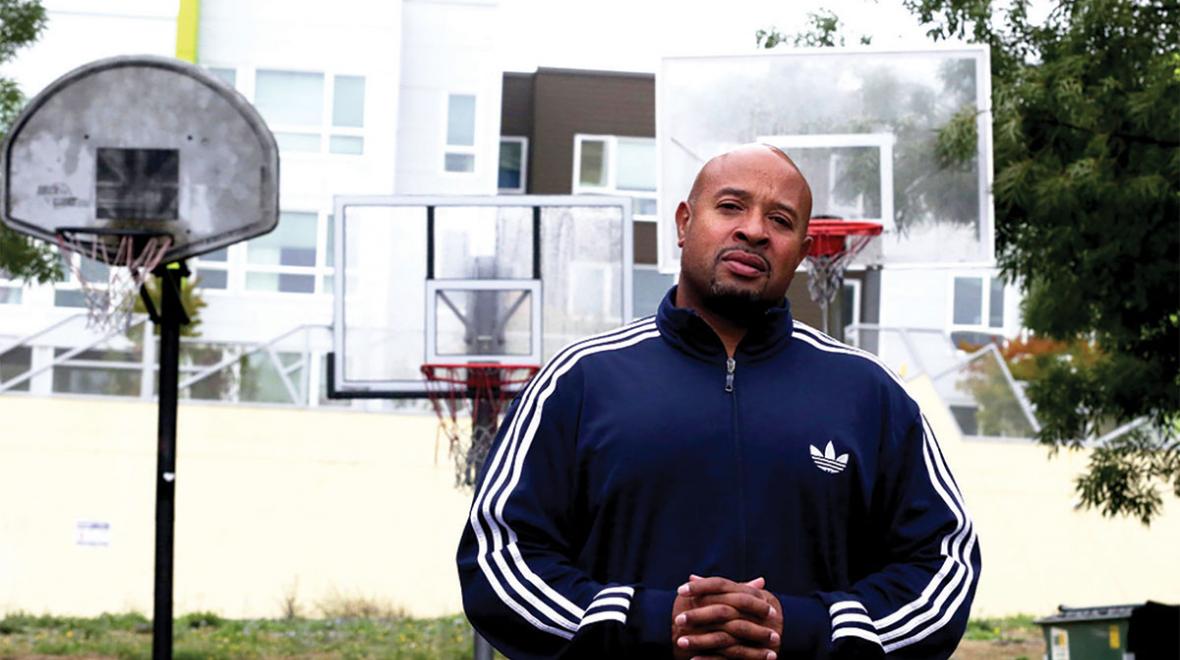
Dominique Davis left drug dealing behind and reinvented himself as a football coach. But when he saw young athletes dropping out of school because of drugs and gangs, he couldn’t stand by and watch.
The coach devoted himself to opening doors for kids, creating opportunities that can lead them along healthier paths.
He cofounded King County’s 180 Program, a diversion program that helps keep young people accused of low-level offenses out of the criminal justice system. He served as the program’s co-director for more than five years.
Then, a rash of violence in Seattle set him on a new course. He decided young people involved in more serious cases needed his attention. He launched a new nonprofit, Community Passageways, at the start of 2017. Community Passageways connects at-risk, gang-involved and incarcerated youth to resources and opportunities to help lead them out of the criminal justice system.
Davis says that in a year’s time the program has helped young people avoid nearly 20 felony charges. It’s also helped countless other kids begin to address the trauma they’ve faced and linked some of them to internships and jobs that will create lasting change in their lives.
How did you become involved with the 180 Program?
I’ve been out here in these streets my whole life. I got involved with this kind of work because I’d been coaching sports for over 26 years, and a lot of the young people in my athletic programs would get into high school and start dropping out and start going down the same path that I went down. [I wanted] to help these kids not fall down the same paths that I did.
What made you want to start Community Passageways?
About three summers ago we had the worst summer in King County. The shootings had escalated to what I’d seen in the late ’80s [and] early ’90s. So many of the kids I knew were getting murdered and murdering people, while I was dealing with people getting arrested for stealing from Safeway and Macy’s. I was running a program that wasn’t addressing any of these issues.
It came to me in the middle of the night. I was so stressed about a seven-day span, right outside of my office. Within a three-block radius, three kids had been shot within seven days. It was heartbreaking and irritating because I knew some of these kids. I said, “This is ridiculous, I’ve got to do something else.”
What impact have you seen this program have on participants?
It comes down to this: You can open up every door you possibly can for a kid, but if the kid isn’t emotionally ready and doesn’t have any trust in you and your process, the kid isn’t going to be very successful. You can’t just throw them into a job.
What we’re able to do — dealing with a lot of the trauma, doing a lot of life-skills training — we’re showing the kids how powerful they are, how smart they are. Their confidence is being built. When they walk out of a college working with a bunch of law school students, they think, “Wow, I can go to college.” We’ve gotten kids through high school who were a year and a half behind. We’ve got kids in college right now, in internships, who were gangbanging and stealing and robbing.
What motivated your own 180-degree turnaround? How did you do it?
Me changing my life is nothing short of a miracle. I wasn’t just a dude on the street corner. I was doing the big stuff; that’s what kept me in the streets so long. One of the things that really hit me is when I realized it don’t matter how much money I make. I started listening to Black history, becoming more conscious of [that], I started really tapping into my power. I started to realize I’m better than this, I’m smarter than this, I don’t have to be a drug dealer; why am I doing this? It was just waking up and going through a process.











